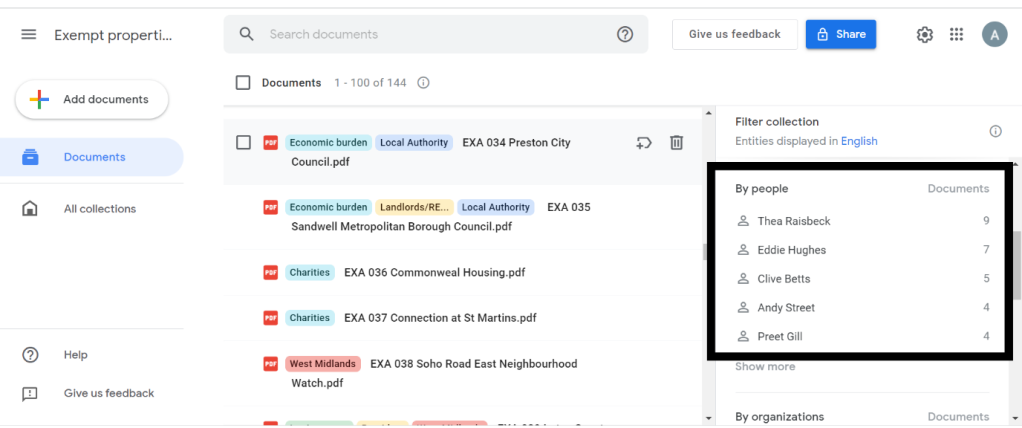
MA Data Journalism student Tony Jarne spent eight months investigating exempt accommodation, collecting hundreds of documents, audio and video recordings along the way. To manage all this information, he turned to Google’s free tool Pinpoint. In a special guest post for OJB, he explains how it should be an essential part of any journalist’s toolkit.
The use of exempt accommodation — a type of housing for vulnerable people — has rocketed in recent years.
At the end of December, a select committee was set up in Parliament to look into the issue. The select committee opened a deadline, and anyone who wished to do so could submit written evidence.
Organisations, local authorities and citizens submitted more than 125 pieces of written evidence to be taken into account by the committee. Some are only one page — others are 25 pages long.
In addition to the written evidence, I had various reports, news articles, Land Registry titles an company accounts downloaded from Companies House.
I needed a tool to organise all the documentation. I needed Pinpoint.
Continue reading

